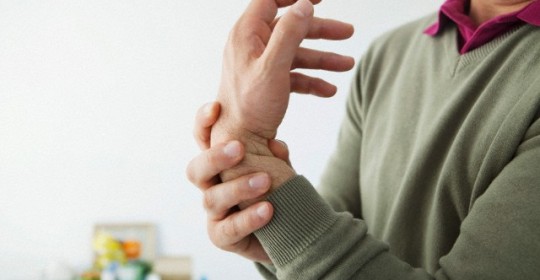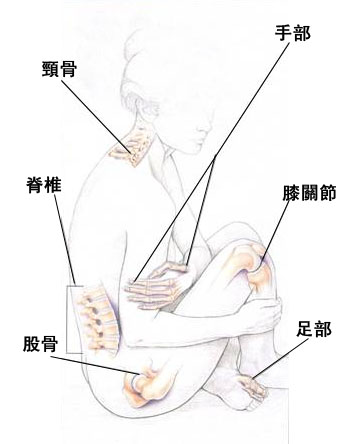2013-11-28

Degenerative Joint Disease(DJD)
Symptoms
The function of cartilage is to protect the joint and relief vibration during activities. However, as age increases, cartilage will degenerate, which will greatly reduce the joint mobility. Degenerative arthritis will also develop over time. When joints move, especially when walking, going up and down stairs, or lifting heavy objects will produce joint pain. Degenerative arthritis affects the knee joints, spine and hand-foot joints.

The main symptoms of degenerative arthritis are pain, stiffness, clicking of joints, swelling and joint deformation. In severe cases, the joints may also experience redness, swelling, burning pain, and inflammation. However, the symptoms are better in the morning and the most painful in the evening, and they can also occur on multiple joints at the same time.
1) Joint pain:
Pain usually occurs after exercise or after holding heavy objects, and can’t bend even after resting.
2) Joint stiffness:
In the initial period, it may only be short period stiffness, but when the condition worsens, the joints will be stiffered permanently and be blocked.
3) Joints produce knocking noise:
Under the influence of degenerative arthritis, knee joints, hip joints, and shoulder joints will produce snapping noises when the joints move.
4) Joint deformity, swelling and inflammation
When the cartilage degenerates, the iliac bone is deformed and enlarged. Causing swelling and inflammation of the joints.
Treatment
Degenerative arthritis cannot be cured. The treatment method is mainly to relieve pain and prevent deterioration. Chiropractors mainly use manual therapy to help with mild pain, and they will also instruct patients on how to protect their joints.
Pay attention to protecting joints:
1) Reduce joint load and avoid weight lifting
2) Overweight people need to lose weight
3) Avoid standing or walking for too long
4) Strengthening and stretching exercises.

 Book an Appointment
Book an Appointment


